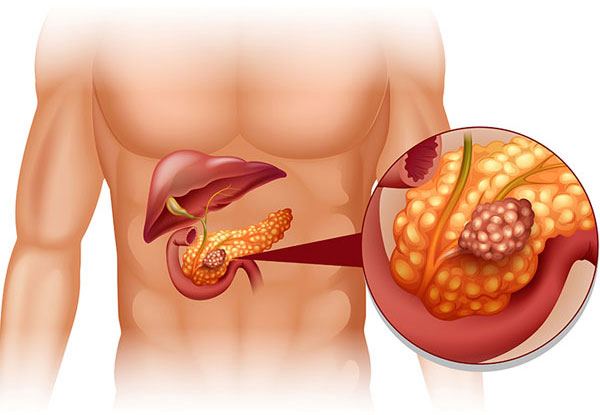Chronic Pancreatitis: How Does It Affect Your Routine Activities?

Your pancreas becomes active whenever you eat or drink something. The pancreas is a large gland located between the stomach and the intestines.
It has two functions:
- It produces enzymes, which help the body digest food.
- It produces hormones, which help the body regulate blood sugar.
Chronic pancreatitis is a condition in which the pancreas becomes inflamed and stops working properly, even after treatment. The disease primarily affects men between the ages of 30 and 40, and without specialized care and proper treatment, this can lead to serious or even life-threatening problems.
People suffering from chronic pancreatitis will have:
- Pain in your upper abdomen
- Nutrient malabsorption
- Fatty stools, which are loose and pale
- Nausea and vomiting
- Shortness of breath
- Excessive thirst and fatigue
- Diarrhea
- Loss of appetite
- Lose weight
- Develop diabetes due to nutritional deficiencies.
Factors that lead to the development of chronic pancreatitis are:
- Genetics
- Excessive consumption of alcohol
- Hereditary
- Autoimmune disease
- Digestive duct blockage
- Extremely high triglyceride levels
To diagnose chronic pancreatitis, your doctor may request the following tests:
- Blood tests
- Stool test
- X-rays
- Ultrasounds
- CT scans
- MRI scans
- ERCP or MRCP
Long-Term Chronic Pancreatitis Management Approach:
As the disease cannot be cured, treatments are used to improve food absorption, relieve pain, and manage diabetes. Early detection and appropriate treatment are the keys to long-term disease management, allowing people with chronic pancreatitis to live normal lives.
Treatment for pancreatitis can include:
Medications: Your doctor may prescribe the following medications to treat chronic pancreatitis:
- Pain relievers
- Insulin if you have diabetes
- Steroids if you have autoimmune pancreatitis, which occurs when your immune system attacks your pancreas.
- Artificial digestive enzymes if your enzyme levels are too low to properly digest food
Endoscopy: Some treatments use an endoscope to alleviate pain and remove blockages. An endoscope is a long, flexible tube inserted into your mouth by your doctor. It enables your doctor to remove pancreatic stones, insert small tubes known as stents to improve flow, and seal leaks.
Diet and lifestyle changes: Patients are not permitted to consume alcohol or smoke; rather, they will be given a proper diet plan that includes foods with high nutritional content and protein levels. Patients should avoid foods with a high fat or sugar content. They are encouraged to eat six small meals per day rather than three large ones.
Surgery: Most people do not require surgery. However, removing a portion of your pancreas can sometimes provide relief if your pain is severe and is not responding to medication. Surgery may also be used to clear a clogged pancreatic duct, drain cysts, or widen it if it is too narrow.
A note from Dr. Neeraj Goel
The prognosis is determined by the severity of the disease and its underlying cause. Other factors, such as your age at diagnosis and whether or not you continue to drink alcohol or smoke cigarettes, can have an impact on your chances of recovery.
Prompt diagnosis and treatment can help improve the prognosis. If you notice any unusual symptoms, contact Dr. Neeraj Goel, a renowned GI surgeon, right away to get the best chronic pancreatitis treatment in Delhi. The condition necessitates long-term monitoring and patient follow-up by a skilled doctor.

 info@gastrodelhi.com
info@gastrodelhi.com +91-9599294453
+91-9599294453